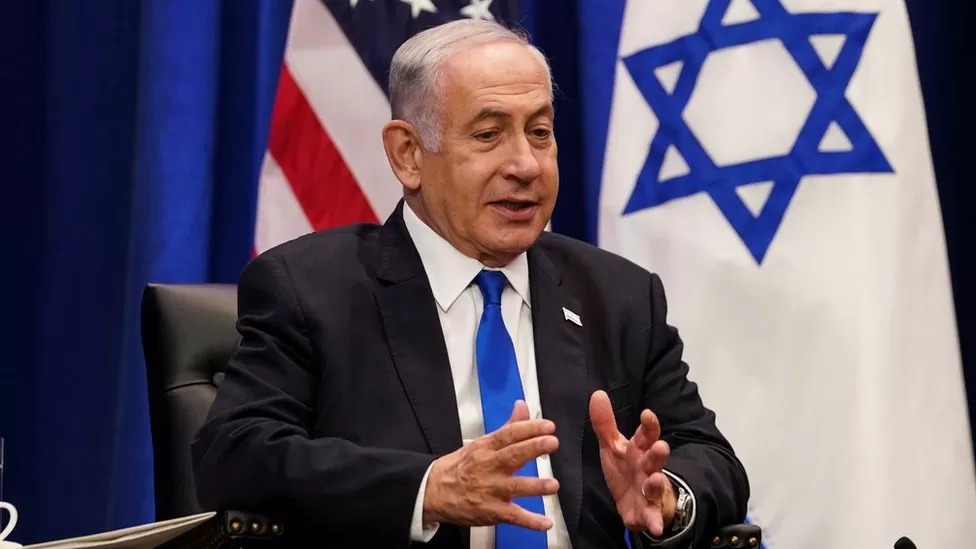In a groundbreaking development on the geopolitical landscape, Saudi Arabia’s Crown Prince, Mohammed bin Salman, has made a significant statement regarding the nation’s relationship with Israel. He stated, “Every day we get closer” to normalizing ties with Israel. This potential alliance between two influential powers holds the promise of a monumental regional shift. In this article, we will delve into the intricacies of this evolving situation, exploring its implications and the underlying complexities.
The Importance of the Palestinian Issue
Despite the growing warmth between Saudi Arabia and Israel, Prince Mohammed bin Salman emphasized the continued importance of the Palestinian issue in the context of US-brokered talks. This stance underscores the sensitivity and multifaceted nature of the negotiations.
Enriched Uranium and Its Implications
As part of the negotiation process, reports from the Wall Street Journal have raised eyebrows. They suggest that Israeli and US officials are working on a plan that could potentially see Riyadh openly enriching uranium.
Enriched uranium, while used for nuclear reactor fuel, can also be employed in the creation of nuclear weapons. The implications of such a development are far-reaching and have global ramifications.
Official statements from both Israel and Saudi Arabia highlight their shared objective of establishing an historic peace agreement. This pursuit aims to contribute to the resolution of the longstanding Arab-Israeli conflict.
Israel’s Foreign Minister, Eli Cohen, even hinted at the possibility of a framework deal materializing early in the coming year.

US Involvement and Political Considerations
The Biden administration is closely monitoring these negotiations, hoping for a timeframe that aligns with their foreign policy goals. Achieving a significant breakthrough in relations between Saudi Arabia and Israel would provide a much-needed foreign policy achievement ahead of the US presidential election.
Saudi Arabia’s Evolving Stance
Traditionally, Saudi Arabia, like many other Arab nations, refrained from recognizing Israel as a show of solidarity with the Palestinian cause. However, recent developments suggest a willingness to reconsider this stance. The Abraham Accords, brokered by the Trump administration, set the stage for normalization agreements between Israel and the United Arab Emirates and Bahrain in 2020.
In exchange for normalizing ties with Israel, Saudi Arabia seeks substantial support from the United States. This includes military assistance, cooperation in establishing a civilian nuclear program, and significant concessions from Israel to benefit the Palestinian cause.
Achieving these objectives is a formidable task, especially considering the current government in Israel, which leans towards religious and nationalist ideologies.
Bilateral Talks and Challenges
Before this pivotal Fox News interview, Israeli Prime Minister Benjamin Netanyahu finally met with President Biden after a prolonged 265-day wait, marking one of the longest intervals between meetings for an Israeli leader. The discussions revolved around the potential deal with Saudi Arabia and the need to improve security and economic conditions while maintaining the viability of a two-state solution.
Saudi Arabia’s Negotiation Strategy
Crown Prince Mohammed expressed optimism about the ongoing negotiation strategy, emphasizing the need to address the Palestinian issue comprehensively. This negotiation involves input from the Palestinian Authority, which has outlined its demands, including financial support and greater control over land in the occupied West Bank.
Complexities of the Two-State Solution
The prospect of a two-state solution, with an independent Palestinian state alongside Israel, remains a contentious issue. Many members of Israel’s governing coalition oppose this internationally backed idea. Their reluctance to cede land in exchange for peace with Saudi Arabia adds another layer of complexity to the negotiations.
Concerns and Reactions
The Wall Street Journal’s report on Saudi Arabia potentially becoming a nuclear power under a right-wing Israeli government has sparked concerns and reactions. Critics argue that such normalization, under these circumstances, poses significant risks to regional stability.
Saudi Arabia’s Nuclear Concerns
Addressing regional concerns, Prince Mohammed expressed worries about Iran obtaining a nuclear weapon. He stated that if Iran were to possess such a weapon, Saudi Arabia would seek its own nuclear capability to maintain a balance of power. This raises critical questions about the proliferation of nuclear weapons in the Middle East.
The potential normalization of ties between Saudi Arabia and Israel is not just a regional matter; it carries global consequences. The international community closely watches these developments, as they have far-reaching implications for diplomacy, security, and peace efforts.
Conclusion
In conclusion, Saudi Arabia’s journey towards normalizing relations with Israel represents a profound shift in the Middle East’s geopolitical landscape. While significant obstacles and complexities remain, the potential for historic peace and cooperation is on the horizon. The coming months will undoubtedly be crucial in determining the future of this evolving relationship.






